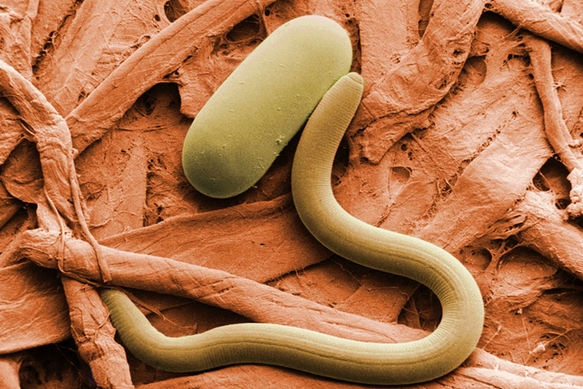- A flesh-eating parasite, the New World screwworm (Cochliomyia hominivorax), is spreading across Central America, posing a growing threat to both livestock and human health.
- The screwworm primarily targets livestock but also infects humans, causing a condition called myiasis. The larvae burrow into open wounds, feeding on living tissue, causing excruciating pain, infection and, in severe cases, death.
- Vulnerable groups include rural residents working with livestock, outdoor workers and travelers to affected regions. Open wounds, cuts, insect bites or conditions like skin cancer or sinus infections can attract the flies.
- Prevention measures include keeping wounds clean and covered, using insect repellents and taking precautions like wearing protective clothing and sleeping in screened areas.
- The U.S. Department of Agriculture (USDA) has imposed restrictions on livestock imports from Mexico to prevent the parasite from entering the United States.
A terrifying flesh-eating parasite is on the rise in Central America, and it’s not just livestock that’s at risk. The New World screwworm, a relentless and invasive fly species, is spreading its larvae into the wounds of both animals and humans, causing a condition known as myiasis that can be deadly if left untreated.
While the parasite has long been a scourge for farmers and their herds, recent outbreaks suggest it’s now a growing threat to human health as well.
The New World screwworm (Cochliomyia hominivorax) is no ordinary pest. It thrives in open wounds, laying hundreds of eggs that hatch into ravenous larvae. These larvae burrow into the flesh, feeding on living tissue and causing excruciating pain, infection and, in severe cases, even death.
For decades, the parasite was thought to be under control, but recent data shows a troubling resurgence across Central America, with cases spreading north from Panama to Mexico.
The New World screwworm has a long and destructive history. In the 1930s and 1950s, it wreaked havoc on livestock in the southern U.S., costing farmers an estimated $100 million annually. […]
— Read More: www.naturalnews.com



